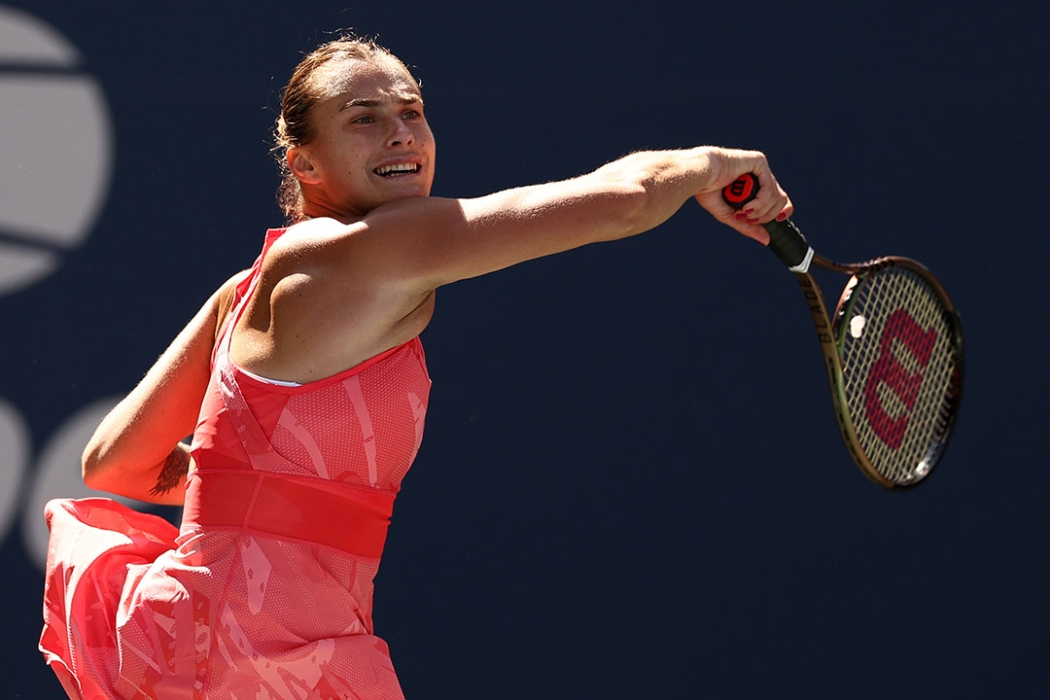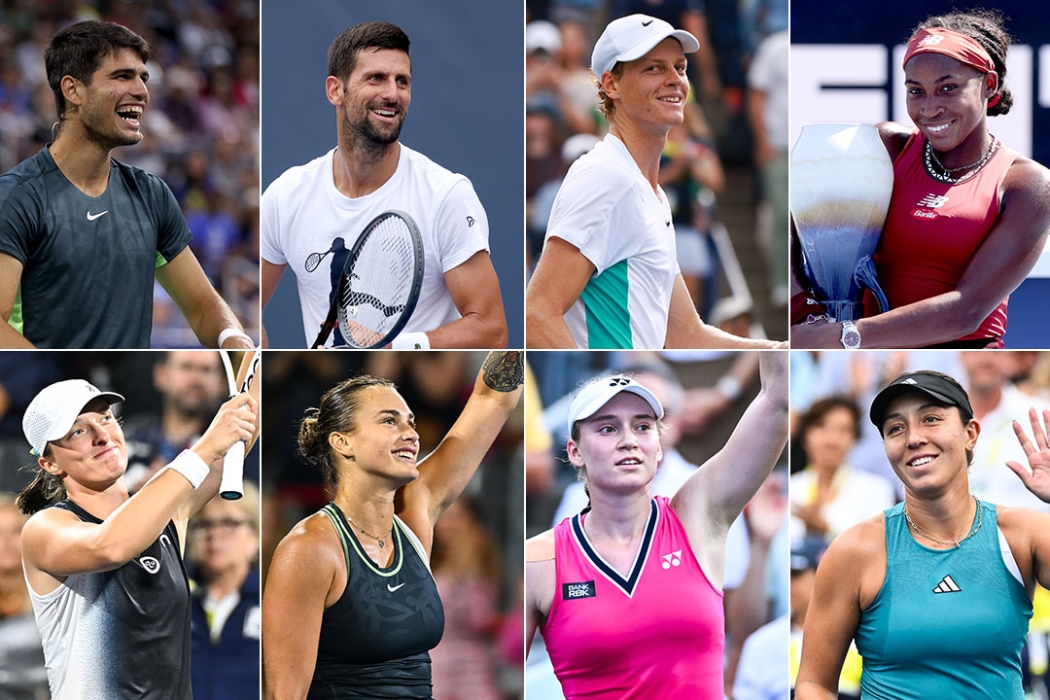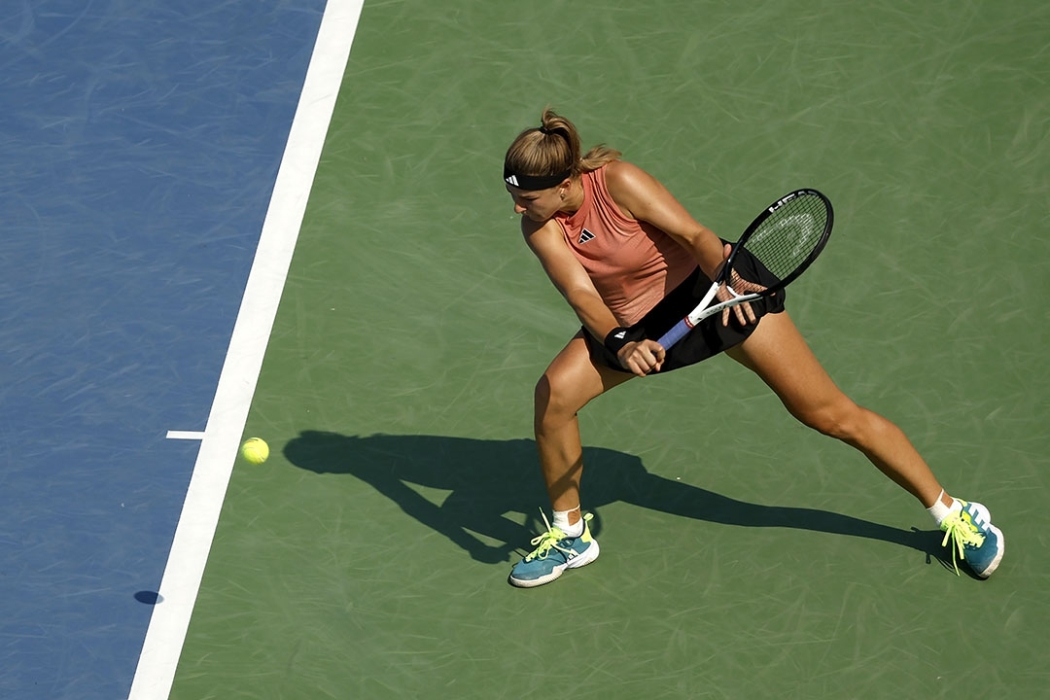Jelena Ostapenko had some foreboding words for Iga Swiatek ahead of their fourth-round match at the US Open.
"It's also not easy to be No.1 because everybody obviously wants to beat you,” Ostapenko said.
"I probably will take advantage of that."
She did, hitting the defending champion off the court in the final set to complete a 3-6 6-3 6-1 triumph. The result moves her into the last eight at the US Open, meaning she has now completed her Grand Slam quarterfinal set.
Every way you assess it, this represents the most seismic result so far at the 2023 US Open.
Swiatek will no longer be world No.1, with Ostapenko terminating her phenomenal 75-week stint at the summit. Aryna Sabalenka will debut at No.1 at the conclusion of the tournament.
Swiatek was a perfect 50-0 in matches this year where she had won the first set, until Sunday night in New York.
Perhaps most notably, Ostapenko improves her head-to-head record against Swiatek to a dominant 4-0.
She is the only player never to lose to Swiatek, among those with a minimum of three matches against her.

“I knew she's a great player and she's very consistent, especially last few years. I also knew she would have all the pressure… I think if she lost against me today she loses the No.1 spot,” said 21st-ranked Ostapenko, now projected to re-enter the world’s top 15.
“I was just trying to make it hard for her and to play my game and to fight until the very last point. I knew there will be moments when I have chances, and I waited for them.
“I think I dominated in the end of the match.”
In February 2022, Ostapenko was the last player to beat Swiatek before the Pole took control of the tour. She built an extraordinary 37-match winning streak, the longest unbeaten run in women’s tennis for 25 years.
That same year, Swiatek won the Roland Garros and US Open titles, and added a fourth major to her trophy cabinet when she defended her title in Paris in June.
Despite all those glittering credentials, Swiatek simply does not like facing Ostapenko, whose game style – based around flat, powerful strokes and a hyper-aggressive approach – makes her feel rushed and overwhelmed.
And Ostapenko knows it.
“I think the main thing is that she doesn't really like to play against big hitters,” said Ostapenko, a former world No.5.
“She likes to have some time. When I play fast, aggressive and powerful, she's a little bit in trouble.”

Under lights at Arthur Ashe Stadium, Ostapenko slashed 31 winners past Swiatek, gathering momentum early in the second set that proved unstoppable.
In a near-flawless final set, she struck eight winners – double Swiatek’s tally – while committing just two unforced errors. She built a 5-0 lead, threatening to bagel the woman who has posted, by far, the most winning 6-0 set scorelines of any player this season.
Swiatek avoided that fate, but in the following game, Ostapenko broke her to love, completing the match – appropriately – with one final winner.
This was a come-from-behind victory, via a flurry of winners, reminiscent of when she powered to the Roland Garros title as a youngster in 2017.
She has since reached one major semifinal and three more quarterfinals, including here at the US Open, where she next plays in-form American Coco Gauff.
But nothing has yet equalled those two heady weeks in Paris.
Perhaps it might this fortnight, in New York?
“I feel like now my game is getting back in place and I'm playing more free, in a good way, and not thinking too much,” Ostapenko explained.
“When I won Grand Slam, my whole life changed and I needed time to adapt to all that. That wasn't easy because at that time I was 19 years old, turning 20. I was expecting that I can win a Grand Slam, but not at such an early age.
“It's really difficult to get used to all this attention, pressure. Everybody expects you to win every single match, every single tournament. This is not possible.
“I feel now I'm more mature. Again, I start to feel in a good way, more loose when I play, I don't think too much and I just enjoy it.”



